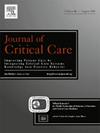从承诺到实践:人工智能在重症监护中的路线图。
IF 2.9
3区 医学
Q2 CRITICAL CARE MEDICINE
引用次数: 0
摘要
在前所未有的计算能力和海量临床数据集的推动下,人工智能(AI)在医学领域重新获得了强劲的势头。重症监护病房(icu)处于这一运动的前沿,因为它们独特地结合了高数据密度、不确定性下的决策以及危重患者的脆弱性。然而,尽管有大量的概念验证研究,人工智能工具的临床翻译仍然非常有限,在现实世界的ICU环境中,只有不到2%的已发表算法进行了前瞻性评估。在这篇社论中,我们讨论了Workum等人提出的路线图,该路线图概述了将人工智能整合到重症监护中的一个渐进的、风险一致的框架。除了模型性能之外,作者还强调了公平性、可解释性和问责制等基本价值,同时强调了数据互操作性、基础设施、治理和责任等实际挑战。他们的工作提醒我们,人工智能的采用主要不是受到算法本身的阻碍,而是受到数据质量、监管清晰度和临床医生信任等周围生态系统的阻碍。我们认为,人工智能在ICU中的真正前景不在于快速的技术突破,而在于谨慎、循证和以人为本的实施。这些系统最终是否会改善以患者为中心的结果仍不确定。因此,Workum等人的路线图应该被解读为对谨慎进展的呼吁:从低风险应用开始,投资于基础设施和跨学科合作,在转向高风险的医疗决策支持之前严格评估临床效益。本文章由计算机程序翻译,如有差异,请以英文原文为准。
From promise to practice: A roadmap for artificial intelligence in critical care
Artificial intelligence (AI) has regained strong momentum in medicine, driven by unprecedented computing power and the availability of massive clinical datasets. Intensive care units (ICUs) are at the forefront of this movement, given their unique combination of high data density, decision-making under uncertainty, and the vulnerability of critically ill patients. Yet despite the abundance of proof-of-concept studies, the clinical translation of AI tools remains strikingly limited, with fewer than 2 % of published algorithms prospectively evaluated in real-world ICU settings.
In this editorial, we discuss the roadmap proposed by Workum et al., which outlines a progressive, risk-aligned framework for the integration of AI in critical care. Beyond model performance, the authors emphasize fundamental values such as fairness, explainability, and accountability, while highlighting the practical challenges of data interoperability, infrastructure, governance, and liability. Their work reminds us that AI adoption is not primarily hindered by algorithms themselves but by the surrounding ecosystem of data quality, regulatory clarity, and clinician trust.
We argue that the true promise of AI in the ICU lies not in rapid technological breakthroughs but in careful, evidence-based, and human-centered implementation. Whether these systems will ultimately improve patient-centered outcomes remains uncertain. The roadmap by Workum et al. should therefore be read as a call for cautious progress: to begin with low-risk applications, to invest in infrastructure and interdisciplinary collaboration, and to rigorously evaluate clinical benefit before moving toward high-stakes medical decision support.
求助全文
通过发布文献求助,成功后即可免费获取论文全文。
去求助
来源期刊

Journal of critical care
医学-危重病医学
CiteScore
8.60
自引率
2.70%
发文量
237
审稿时长
23 days
期刊介绍:
The Journal of Critical Care, the official publication of the World Federation of Societies of Intensive and Critical Care Medicine (WFSICCM), is a leading international, peer-reviewed journal providing original research, review articles, tutorials, and invited articles for physicians and allied health professionals involved in treating the critically ill. The Journal aims to improve patient care by furthering understanding of health systems research and its integration into clinical practice.
The Journal will include articles which discuss:
All aspects of health services research in critical care
System based practice in anesthesiology, perioperative and critical care medicine
The interface between anesthesiology, critical care medicine and pain
Integrating intraoperative management in preparation for postoperative critical care management and recovery
Optimizing patient management, i.e., exploring the interface between evidence-based principles or clinical insight into management and care of complex patients
The team approach in the OR and ICU
System-based research
Medical ethics
Technology in medicine
Seminars discussing current, state of the art, and sometimes controversial topics in anesthesiology, critical care medicine, and professional education
Residency Education.
 求助内容:
求助内容: 应助结果提醒方式:
应助结果提醒方式:


